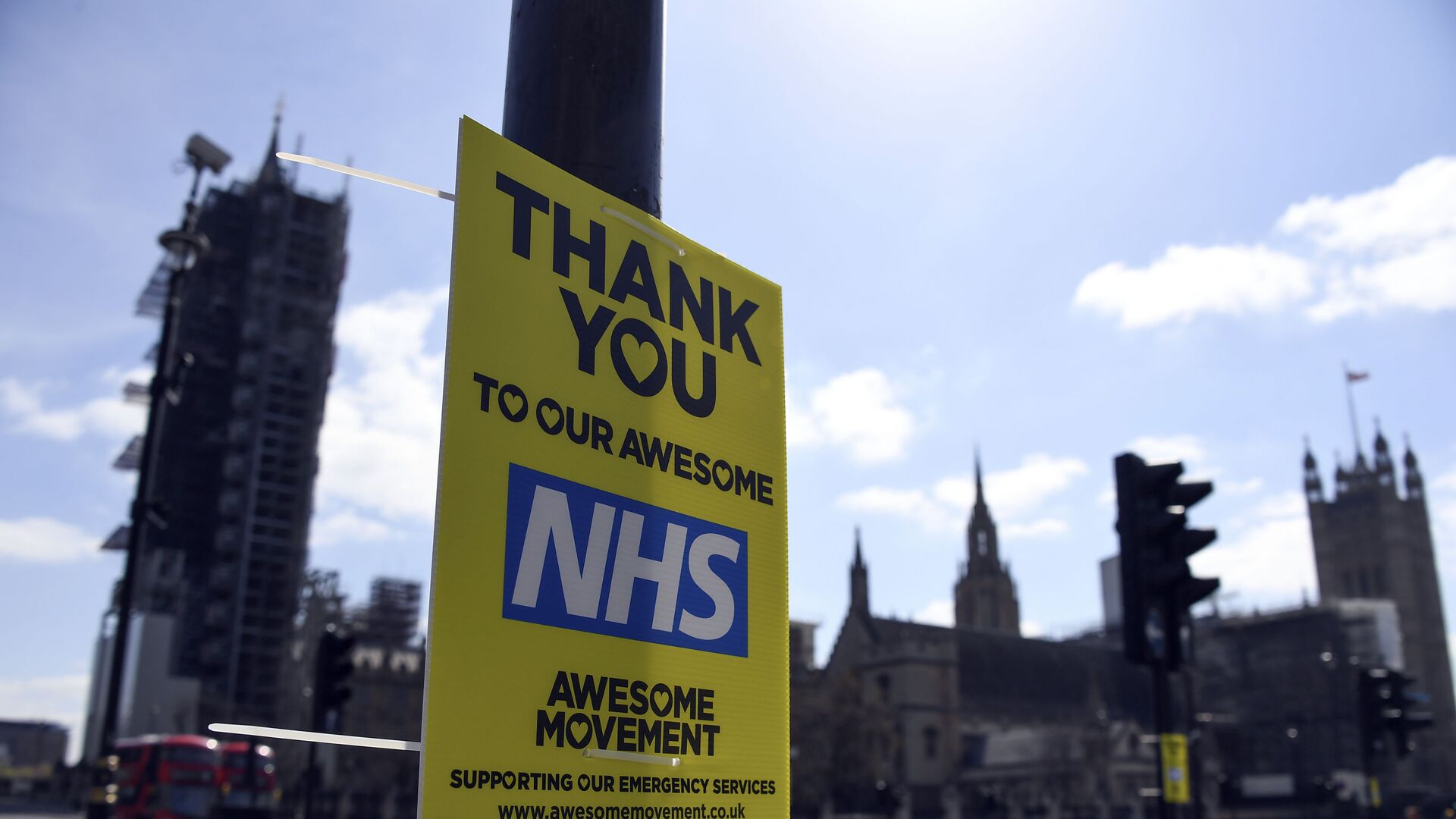A white paper outlining the plans for a major reform of the UK's National Health Service (NHS) is due to be released later this month, The Times has cited unnamed government sources as saying.
The sources claimed government ministers are expected to take more control of the NHS, in line with Britain's "biggest health reform for a decade".
The shake-up stipulates that ministers will be authorised to block the closure of hospitals, put fluoride in water, and deal with obesity prevention measures, among other things.

The reform also reportedly aims to remove forced privatisation and competition within the NHS, with scores of new management bodies expected to take control of billions of pounds of taxpayers' money.
The sources described the upcoming revisions as "evolution rather than a big bang", referring to previous calls by Sir Simon Stevens, the head of NHS England, to start dealing with NHS reforms in order to make it easier for hospitals, GPs, and others to plan healthcare locally.
The forthcoming publication of the white paper on reforming the NHS will come as the government is facing questions on why all this is taking place amid the ongoing COVID-19 pandemic.
Shadow Health Secretary Jonathan Ashworth, for his part, said that "ministers need to explain why reorganisation is the pressing priority when 190,000 people are waiting more than 12 months for treatment, and cancer survival rates need to be radically improved".
The statement followed an NHS spokesperson singling out the reform, and noting that the UK healthcare system "has come together to draw up practical proposals that will make it easier for those delivering health and care to work together […] without some of the fragmentation implicit in the 2012 act".
In the autumn of 2010, Lansley unveiled the Health and Social Care Bill, a fundamental reorganisation of the NHS. The said changes pertained to healthcare expenses in Britain, the abolition of primary healthcare trusts, and the transfer of funds allocated for UK health services to clinical commissioning groups.
Boris Johnson on the Right Track?
Dr Bharat Pankhania, senior clinical lecturer at the University of Exeter Medical School, believes that the biggest reform the UK needs is not to reverse what was introduced under David Cameron in 2012, "but what Margaret Thatcher introduced many years ago, in 1992".
"We have to reverse what was introduced in 1992, when an artificial market was created - an artificial market of a provider and a purchaser. In the UK, we have an artificial market called a provider: the provider is the National Health Service and the purchaser is somebody who buys these services, which is also the National Health Service. We need an integrated service, not an artificial market - a provider and a purchaser split," he says.
According to Dr Pankhania, Boris Johnson is on the right track: even though a new policy might have no changes with respect to the coronavirus, his government is "finally recognising it is cheaper and better if local hospitals and local NHS, and local authorities deal with the problem".
When the vaccines against the coronavirus were delivered by local authorities and doctors, results showed that "number one, [the vaccine] was deployed very quickly; number two, [the vaccination campaign] is running very well; number three, it is cheaper than private companies", Dr Pankhania explains.
Although "these reforms take months to happen", the lecturer says it is essential for the British government to use existing knowledge, skills, and expertise to ensure high quality care can be provided over the long term.
"The government is wasting a lot of money employing private agents and private consultants to tell the government what to do - when if you ask the person who is already doing the job, in the job - the experts - they will tell you what to do," Dr Pankhania concludes.




